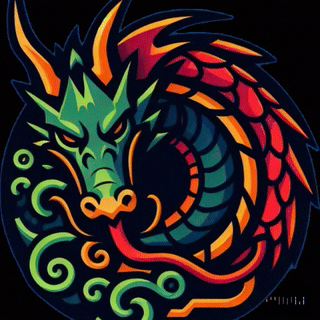Grab a torch and tread softly—we're about to descend into the quiet, sacred realm of the dead. Let’s meet the god with the black jackal’s head and a heart full of ancient secrets: Anubis.
Part 7: Anubis – Guardian of the Dead
Here’s the scene: it’s night in ancient Egypt. The stars are bright, the desert air is cool, and a funeral procession is slowly making its way toward a freshly carved tomb. There’s incense in the air, prayers being whispered, and at the head of the line—Anubis. Calm. Watchful. Ever-present.
Anubis isn’t flashy. He doesn’t cause chaos or throw lightning bolts. But don’t let his quiet presence fool you—this jackal-headed god was one of the most important figures in all of Egyptian belief. Why? Because he was the one who guided people through death, and let’s face it, in ancient Egypt, nothing mattered more than what happened after you died.
The Jackal at the Threshold
Anubis’s image is unmistakable: a sleek black jackal or a man with a black jackal’s head, his long ears alert, his posture dignified. And that black color? It’s not about evil or darkness—it symbolizes the rich, fertile soil of the Nile, the kind used in burials. It’s the color of rebirth, not fear.
The reason Anubis got the jackal look is actually super practical. Jackals are desert scavengers. They used to linger around tombs and cemeteries, probably hoping for a free snack (yikes). Instead of freaking out about it, the Egyptians embraced it—they turned the jackal into a divine protector, a being who would guard the dead instead of disturb them.
Lord of the Sacred Embalming Tent
Before Osiris took over the underworld gig, Anubis was the original god of the dead. He handled the whole operation—from mummification to judgment.
The embalming process in Egypt was no small thing. It was sacred. Ritualized. Every step had a meaning. And Anubis was believed to be right there in the embalming tent, watching over the priests as they purified and wrapped the body.
When priests worked on a body, one of them even wore a mask of Anubis, becoming a living stand-in for the god himself. That’s how close Anubis was to the process. He wasn’t distant. He was there.
He was also called "He Who Is Upon His Mountain," watching over the tombs from the cliffs above. The desert was full of dangers—both physical and spiritual—and Anubis was the guardian that kept those threats at bay.
Guide to the Afterlife
Okay, so someone dies. Their body is mummified, their tomb filled with goods and prayers. What happens next?
Enter Anubis again—this time as a psychopomp, a divine guide who escorts the soul into the Duat, the mysterious Egyptian underworld.
He’s not the judge. He’s not the executioner. He’s the calm, silent presence leading you through the most important journey of your existence. Think of him as your celestial travel agent through the afterlife—cool, calm, professional, but with serious cosmic power.
And when you get to the Hall of Ma’at for the Weighing of the Heart ceremony, guess who’s there?
Anubis.
He’s the one who gently takes your heart—believed to carry your memories, your thoughts, your deeds—and places it on one side of the golden scales. On the other side? The Feather of Ma’at, the embodiment of truth and balance.
If your heart is light, you pass. If it’s heavy, well... hello, Ammit (the part-crocodile, part-lion, part-hippo soul muncher we met in Osiris’s chapter).
But even here, Anubis doesn’t judge. He doesn’t gloat. He just makes sure the ritual is done right, fairly, perfectly.
Protector of Tombs and Souls
People loved Anubis. He wasn’t feared—he was trusted. Egyptians believed that with Anubis nearby, their loved ones were safe. That their souls would be cared for. That no evil would sneak into the tomb to defile or steal or drag the dead into darkness.
Amulets of Anubis were buried with mummies, placed near doorways, carved into sarcophagi. He was invoked in prayers and spells from the Book of the Dead, especially those meant to open the way to the afterlife or keep the spirit safe on its journey.
He wasn’t a god of terror—he was a god of transition.
The Birth and Mystery of Anubis
Anubis’s family tree is a bit tangled, depending on which version of the myth you read.
In some tales, he’s the son of Nephthys and Osiris, born in secret when Nephthys disguised herself as Isis. Other versions say Set is his father, which would make his loyalty to Osiris all the more fascinating.
Either way, Anubis is caught between worlds. He’s not part of the usual drama. He stays above it—focused, devoted, always walking the line between life and death.
The Quiet Strength of Anubis
Anubis reminds us that not all heroes wear crowns or hurl lightning. Some stand in silence, guarding sacred spaces. Some perform quiet duties that no one else wants, but everyone needs.
He represents ritual, respect, and care—the idea that death isn’t the end, but a passage that deserves honor. He’s the god who shows up when things fall apart, who helps put things back together, and who watches over us when we are at our most vulnerable.
And in a world where so many gods embodied power, chaos, love, and war, Anubis offered something different: peace. Not the loud kind, but the deep, grounding kind—the kind that lets a soul rest easy, knowing someone is watching over them.
Next stop: Part 8: Thoth – The God of Wisdom and the Moon, where things get a little more intellectual (and just a bit magical), as we dive into the world of scrolls, spells, and starlit wisdom. Ready to meet the ibis-headed scribe of the gods? 📜🌙
480-366-3550 (Domain Sales)
© SDBEST LLC, 2025. All rights reserved.
Sponsorship Disclosure
Terms of Service
